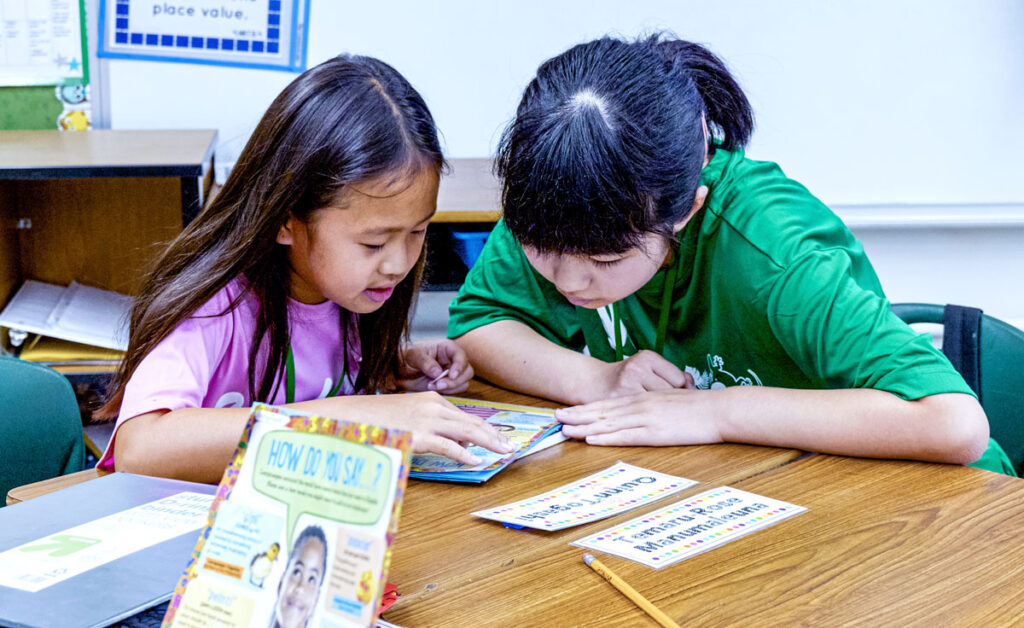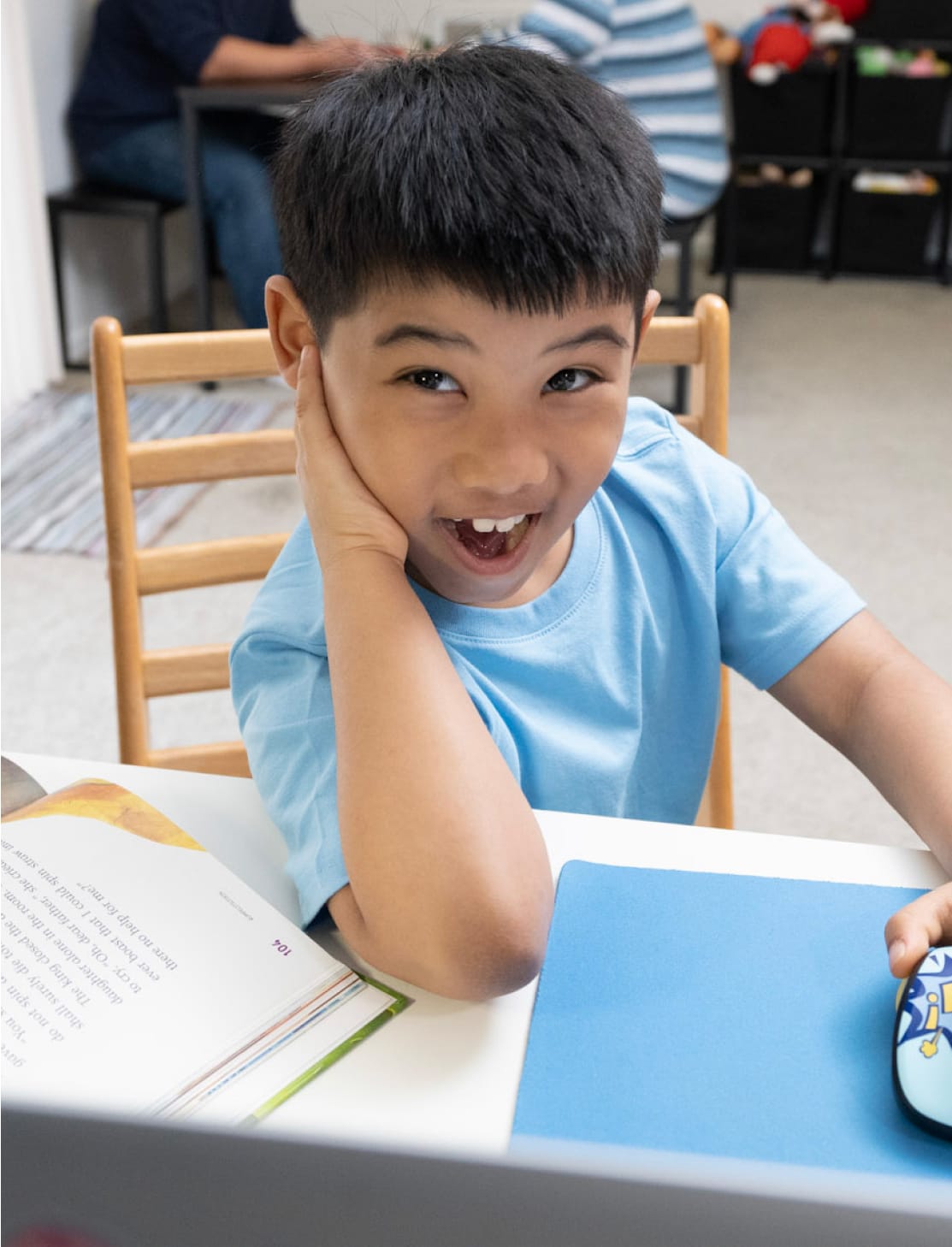Discover Why Enrolling in Grade School Peoria is a Great Start for Young Learners
Variables to Consider in Deciding On Independent School: Understanding What Each Organization Needs To Deal for Your Child's Development
Picking an independent school for a child involves cautious factor to consider of numerous elements. Moms and dads should evaluate the academic curriculum and mentor approaches of various institutions. They need to additionally explore after-school activities that could enhance their child's experience. Additionally, recognizing the school's society and worths is important for alignment with family beliefs. As financial implications play a considerable role, it is essential to evaluate tuition prices versus readily available scholarships. How do these elements form a youngster's growth course?
Academic Curriculum and Mentor Ideology
When picking an independent school, understanding the scholastic educational program and training ideology is crucial, as these aspects greatly influence a youngster's educational experience. Parents should check out the school's strategy to teaching and the topics used, as this can vary substantially amongst establishments. Some colleges might take on a standard educational program concentrated on core topics, while others may highlight project-based knowing or interdisciplinary researches.
Furthermore, the teaching philosophy can form class characteristics and trainee involvement. Colleges that prioritize a student-centered method usually foster essential reasoning and cooperation, while those with a much more organized setting might focus on technique and fundamental abilities.
Extracurricular Activities and Enrichment Programs

Importance of Diverse Activities
While scholastic excellence is usually focused on in exclusive institutions, the significance of diverse tasks, including extracurricular tasks and enrichment programs, can not be overstated. These tasks play an important duty in a kid's alternative advancement, using chances for imagination, critical thinking, and team effort. Participating in different pursuits permits students to explore their passions, find new enthusiasms, and establish crucial life skills, such as time administration and self-discipline. In addition, varied tasks can foster a feeling of belonging and community, boosting the general institution experience. By taking part in clubs, sports, and creative endeavors, trainees not just enrich their education and learning however additionally produce remarkable experiences that contribute to their personal growth. Diverse tasks are essential to cultivating all-around people.
Impact on Social Skills
How do extracurricular tasks and enrichment programs affect a child's social skills? These programs give essential chances for children to connect with peers beyond the standard classroom setup. Participating in sports, clubs, or arts cultivates problem, teamwork, and communication resolution. Children learn to browse varied social environments, boosting their ability to establish and create relationships empathy. In addition, getting involved in various activities urges self-confidence, as kids handle brand-new obstacles and duties. As they collaborate on tasks or complete in groups, they likewise gain beneficial experience in management and teamwork. Inevitably, a rich range of extracurricular offerings adds significantly to a child's social advancement, preparing them for future interpersonal communications in both personal and scholastic contexts.
College Culture and Values
Comprehending the institution culture and values is important for moms and dads examining private education choices, as these elements greatly affect a youngster's general experience. Each establishment embodies unique philosophies, traditions, and social norms that form trainees' day-to-days live. An institution that stresses inclusivity may cultivate a supportive atmosphere, encouraging children to develop compassion and regard for varied histories. Alternatively, organizations that focus on academic excellence might produce an affordable environment, motivating trainees to aim for high achievement.
In addition, the positioning of a school's worths with a household's beliefs can improve a child's feeling of belonging, strengthening favorable habits and perspectives. Moms and dads ought to explore the school's mission statement, evaluate its disciplinary policies, and observe trainee interactions to gauge the pertinent society. Inevitably, a college's society and values significantly affect not only scholastic success however additionally personal development, equipping kids with important life skills for their future.
Course Dimension and Student-Teacher Ratio
Course size and student-teacher proportion play an essential duty in the educational experience supplied by independent schools. Smaller classes usually lead to boosted private interest, cultivating much better trainee involvement and understanding. Research suggests that these aspects can significantly impact discovering outcomes, making them important factors to consider for parents.
Benefits of Smaller Courses
Smaller class dimensions significantly enhance the educational experience by fostering extra individualized focus from instructors. In these atmospheres, educators can tailor their instruction to meet private trainee demands, allowing for a deeper understanding of the material. With less students, instructors can more easily determine those who may be battling and give immediate assistance. This close interaction can cultivate more powerful relationships in between instructors and pupils, producing an encouraging atmosphere conducive to learning. In addition, smaller classes often advertise higher involvement, as trainees may feel more comfortable articulating their questions and ideas. This dynamic motivates joint knowing and improves general classroom engagement. Eventually, the benefits of smaller courses contribute extremely to an all-around academic experience that prioritizes student development and development.
Effect On Understanding Outcomes
The benefits of smaller classes expand beyond individualized attention, considerably affecting discovering end results. Research study consistently shows that a lower student-teacher ratio fosters enhanced interaction, permitting instructors to customize direction to individual needs. This environment motivates active engagement, essential thinking, and deeper understanding of the product. In smaller settings, teachers can much more efficiently recognize and address finding out spaces, resulting in improved academic performance. Kindergarten. Additionally, pupils usually feel a lot more comfortable revealing their ideas and asking inquiries, which can better improve the learning experience. Conversely, larger course dimensions might limit communication and comments, potentially hindering pupil growth. Because of this, when reviewing official site private institutions, households ought to consider class size and student-teacher proportions as significant factors affecting their child's educational success
Community Involvement and Parental Participation
Exactly how can area engagement and adult participation improve the academic experience in private institutions? These components play an essential function in enriching the discovering atmosphere. When parents proactively take part in school tasks, they cultivate a sense of belonging and assistance amongst pupils. This participation can take various forms, such as volunteering for occasions, attending meetings, or signing up with committees, which not just click enhances the institution neighborhood however also boosts interaction in between educators and family members.
Neighborhood involvement extends this assistance by linking the school with local companies, services, and cultural institutions (Private School). Such partnerships provide trainees with special discovering opportunities, consisting of workshops and internships, which contribute to their overall growth. Furthermore, schools that prioritize these connections typically produce an even more comprehensive atmosphere, enabling diverse perspectives to be shared. Ultimately, community involvement and parental participation offer to develop a helpful and collective environment that adds positively to trainees' scholastic and social success
Financial Considerations and Scholarships
Navigating the monetary landscape of personal colleges can be a complex process for families. Tuition prices differ significantly, frequently affected by aspects such as location, centers, and the college's reputation. Family members have to assess their economic situation, considering not just tuition yet also added expenses like uniforms, costs, and after-school activities.
Several independent schools offer scholarship programs focused on drawing in varied student populaces - Private School. These scholarships can relieve financial concerns and make high quality education easily accessible to family members with differing income levels. It is necessary for parents to make inquiries about the accessibility of merit-based and need-based scholarships and recognize the application processes entailed
Additionally, some colleges provide adaptable layaway plan that can reduce immediate monetary stress. By examining all monetary elements and checking out scholarship chances, families can make educated helpful resources decisions that line up with their instructional objectives and budgetary constraints.
Frequently Asked Concerns
Exactly How Do Institutions Support Trainees With Discovering Disabilities?
Colleges sustain trainees with learning handicaps through individualized education and learning strategies, specialized training techniques, and additional resources. They commonly provide customized treatments, access to sustain staff, and comprehensive settings to foster emotional and scholastic development.
What Is the Institution's Approach to Self-control and Habits Management?
The institution's approach to self-control and behavior monitoring emphasizes positive support, clear expectations, and restorative practices. Team proactively involve pupils in conversations about actions, promoting a helpful environment that encourages individual responsibility and liability.
Exactly How Do Colleges Take Care Of Trainee Transitions, Such as Relocating to Higher Qualities?
Schools usually supply structured support throughout student modifications, consisting of positioning programs, mentorship possibilities, and tailored academic preparation. These actions intend to alleviate stress and anxiety, promote modification, and guarantee pupils are prepared for the difficulties of higher qualities.
What Are the School's Plans on Innovation Usage in the Class?

Exactly How Do Institutions Examine Trainee Progress and Give Feedback to Moms And Dads?
Schools evaluate trainee progression via normal assessments, including tests, projects, and classroom participation. Responses is provided to moms and dads via progress report, parent-teacher seminars, and on the internet sites, guaranteeing continual interaction concerning each child's academic advancement.
